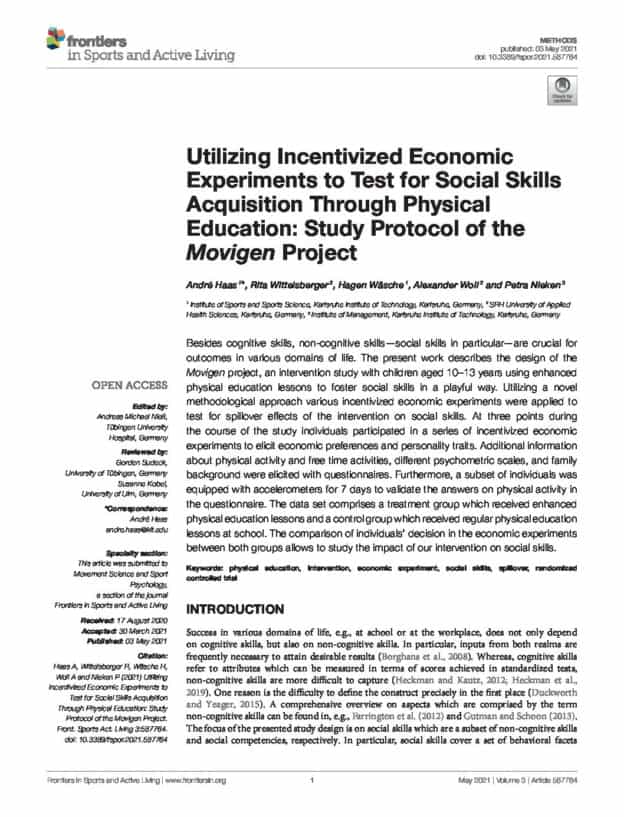Abstract
Besides cognitive skills, non-cognitive skills—social skills in particular—are crucial for outcomes in various domains of life. The present work describes the design of the Movigen project, an intervention study with children aged 10–13 years using enhanced physical education lessons to foster social skills in a playful way. Utilizing a novel methodological approach various incentivized economic experiments were applied to test for spillover effects of the intervention on social skills. At three points during the course of the study individuals participated in a series of incentivized economic experiments to elicit economic preferences and personality traits.
Additional information about physical activity and free time activities, different psychometric scales, and family background were elicited with questionnaires. Furthermore, a subset of individuals was equipped with accelerometers for 7 days to validate the answers on physical activity in the questionnaire. The data set comprises a treatment group which received enhanced physical education lessons and a control group which received regular physical education lessons at school. The comparison of individuals’ decision in the economic experiments between both groups allows to study the impact of our intervention on social skills.



Responses